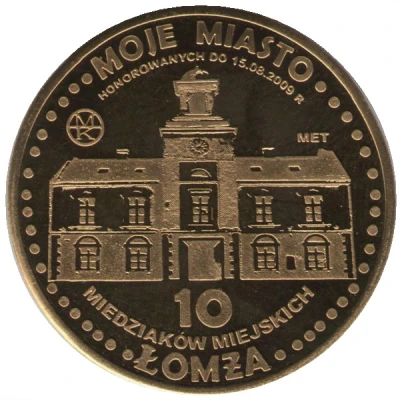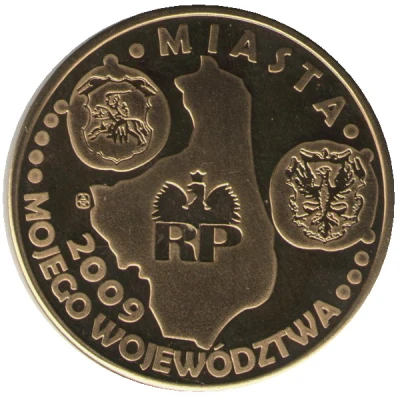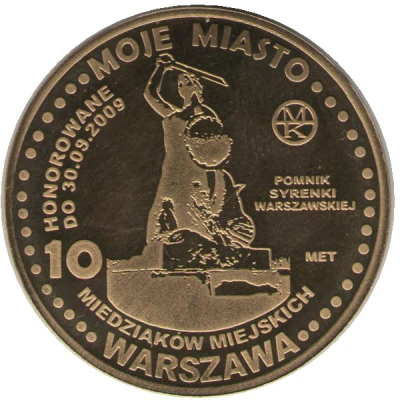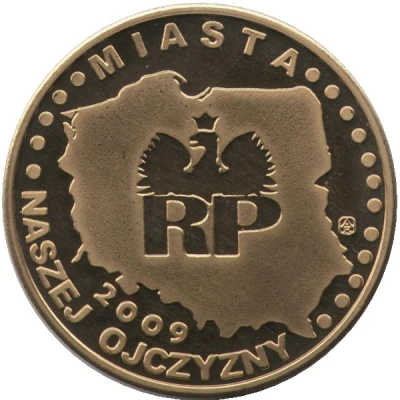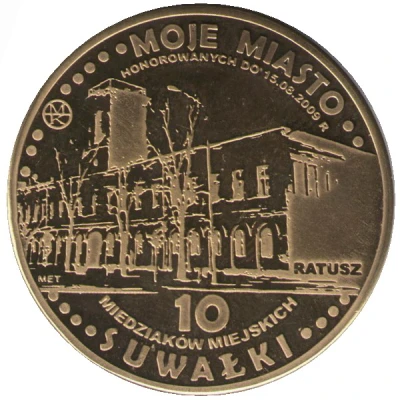
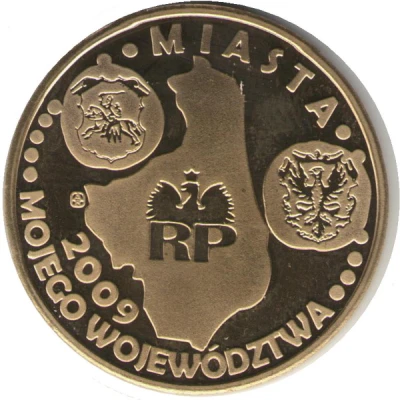

© Rojomano
10 Miedziaków miejskich Suwałki
2009 year| Brass | 13 g | 32 mm |
| Location | Poland |
|---|---|
| Type | › Tokens |
| Year | 2009 |
| Value | 10 Miedziaków miejskich |
| Composition | Brass |
| Weight | 13 g |
| Diameter | 32 mm |
| Thickness | 2.1 mm |
| Shape | Round |
| Technique | Milled |
| Orientation | Medal alignment ↑↑ |
| Updated | 2024-11-14 |
| Numista | N#97908 |
|---|---|
| Rarity index | 97% |
Reverse
Map and coats of arms.
Date.
Lettering:
MIASTA
RP
2009
MOJEWO WOJEWÓDZTWA
Edge
Plain
Comment
Suwałki is a town in northeastern Poland with over 70,000 inhabitants. The town gives its name to the Polish protected area known as Suwałki Landscape Park.The village was founded by Camaldolese monks, who in 1667 were granted the area surrounding the future town by the Grand Duke of Lithuania and the King of Poland John II Casimir. Soon afterward the monastic order built its headquarters in Wigry, where a monastery and a church were built. In 1710 King Augustus II the Strong granted the village a privilege to organize fairs and markets. Five years later, in 1715, the village was granted town rights by the grand master of the order, Ildefons.
In 1807 Suwałki became part of the newly formed Duchy of Warsaw and one of the centres of the department of Łomża. After the defeat of Napoleon Bonaparte and the Congress of Vienna, the area was incorporated into the Kingdom of Poland.
During the later stages of the Polish Defensive War of 1939 the town was briefly captured by the Red Army. However, on October 12 of the same year the Soviets withdrew and transferred the area to the Germans, in accordance with the Nazi-Soviet Alliance. The town was renamed to Sudauen and incorporated directly into the German Reich's East Prussia. Severe laws and terror that erupted led to the creation of several resistance organisations. Although most of them were at first destroyed by the Gestapo, by 1942 the area had one of the strongest ZWZ and AK networks. Despite the resistance, almost the entire town's once 7,000-strong Jewish community was murdered in Nazi concentration camps.
After the war, Suwałki remained a capital of the county. However, the heavily damaged town recovered very slowly and the Communist economic system could not solve the town's problems.
